Peppers and zucchini are among the main crops grown in Sicily, but the scenario is not the same for the two references. The overview of the situation was provided by Patrizia Calabrese, commercial manager of the growers organization Consorzio Fonteverde from the Ispica (RG).
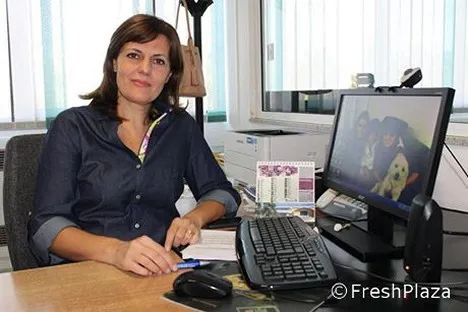 Patrizia Calabrese
Patrizia Calabrese
"We work according to the rules and safety regulations imposed on us because of the corona pandemic. Unfortunately, this involves some sacrifices and investments, which we consider to be an integral part of our management processes. If we look at the crops, we see that this bell pepper season has had no major problems and we are not worried about sales. There was a slight drop in consumption and the price is slightly lower than we had expected. These fluctuate between €0.90 and €1.00 per kilo for the growers. The Spanish peppers now have slightly lower prices and the competition is starting softly. All in all, no reason to worry," said Patrizia.
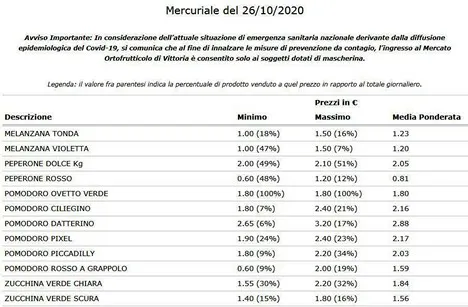 Above and below are the prices for zucchinis and peppers with indication of the dates.
Above and below are the prices for zucchinis and peppers with indication of the dates.
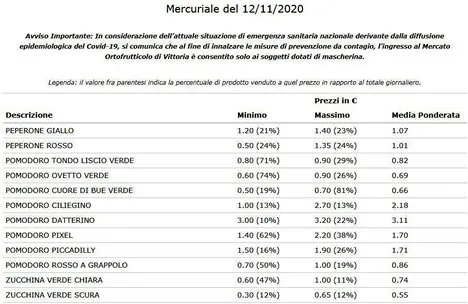 "The situation for zucchinis has improved compared to a number of years ago. At that time, a large part of the outdoor harvest was affected by the New Delhi virus. Meanwhile, at the end of October/beginning of November, the cultivation has been moved to the east of Sicily, where it is grown under tunnels. The lower temperatures in autumn make it harder for the whitefly to survive. Immediately after transplanting, the seedlings are protected with non-woven substance (TNT) against the white fly. These two agronomic applications ensure that the plant can grow well before the fruiting process begins and is not easily exposed to the virus.
"The situation for zucchinis has improved compared to a number of years ago. At that time, a large part of the outdoor harvest was affected by the New Delhi virus. Meanwhile, at the end of October/beginning of November, the cultivation has been moved to the east of Sicily, where it is grown under tunnels. The lower temperatures in autumn make it harder for the whitefly to survive. Immediately after transplanting, the seedlings are protected with non-woven substance (TNT) against the white fly. These two agronomic applications ensure that the plant can grow well before the fruiting process begins and is not easily exposed to the virus.
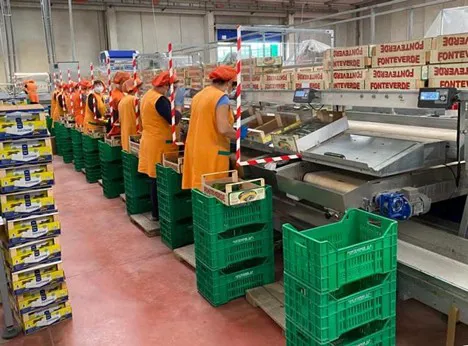 Working in times of Covid
Working in times of Covid
"The first batches of zucchini that were sold had very high prices, over €2.00 per kilo. As more quantities were available on the market, prices fell to a low point. This means we can't return the investment we've made. The Spanish market also collapsed and that certainly contributed to the decline of the European market. In addition, we are also seeing an unprecedented drop in consumption, not only because of the persistently high temperatures, but also because consumers are tired of the situation. This is having an impact on the market," continued Patrizia.
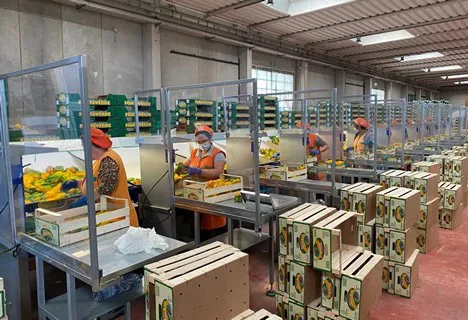 Working in times of Covid
Working in times of Covid
"During the first corona wave a lot of food was bought and stocked. In this second wave, consumers are more cautious, because of the loss of purchasing power and overall uncertainty. Still, we must not forget that the hospitality industry is once again paying the highest price. In March, the missing share of the hotel and catering industry was absorbed by the supermarkets, but now there is a decreasing turnover in all commercial sales channels".
"The only thing we can do is wait until the cold weather arrives, which stimulates the sales of zucchinis. The hope is that consumption and therefore sales will increase, but above all, we hope that a solution to the pandemic will soon be found, so that we can return to a normal situation," concluded Patrizia.
Contact:
OP Consorzio Fonteverde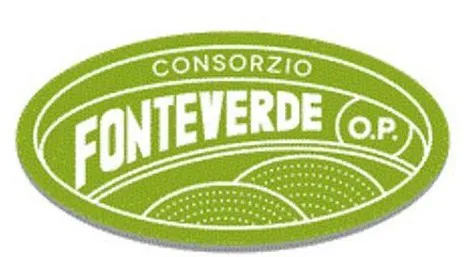
Società Consortile Agricola a r.l.
C.da Fontanazza s.n.
97014 Ispica (RG) Italy
Phone: +39 0932 951484
Fax: +39 0932 951200
Email: [email protected]
Website: www.fonteverde.com
